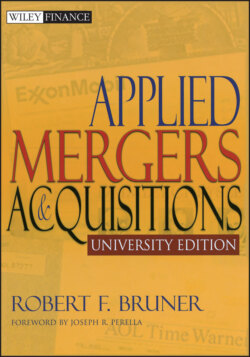Читать книгу Applied Mergers and Acquisitions - Robert F. Bruner - Страница 31
“Right” and “Wrong” Defined by Consequences
ОглавлениеAn easy point of departure is to focus on outcomes. An action might be weighed in terms of its utility9 for society. Who is hurt or helped must be taken into consideration. Utility can be assessed in terms of the pleasure or pain for people. People choose to maximize utility. Therefore, right action is that which produces the greatest good for the greatest number of people.
Utilitarianism has proved to be controversial. Some critics feared that this approach might endorse gross violations of norms that society holds dear including the right to privacy, the sanctity of contracts, and property rights, when weighed in the balance of consequences for all. And the calculation of utility might be subject to special circumstances or open to interpretation, making the assessment rather more situation-specific than some philosophers could accept.
Utilitarianism was the foundation for modern neoclassical economics. Utility has proved to be difficult to measure rigorously and remains a largely theoretical idea. Yet utility-based theories are at the core of welfare economics and underpin analyses of phenomena varying as widely as government policies, consumer preferences, and investor behavior.
